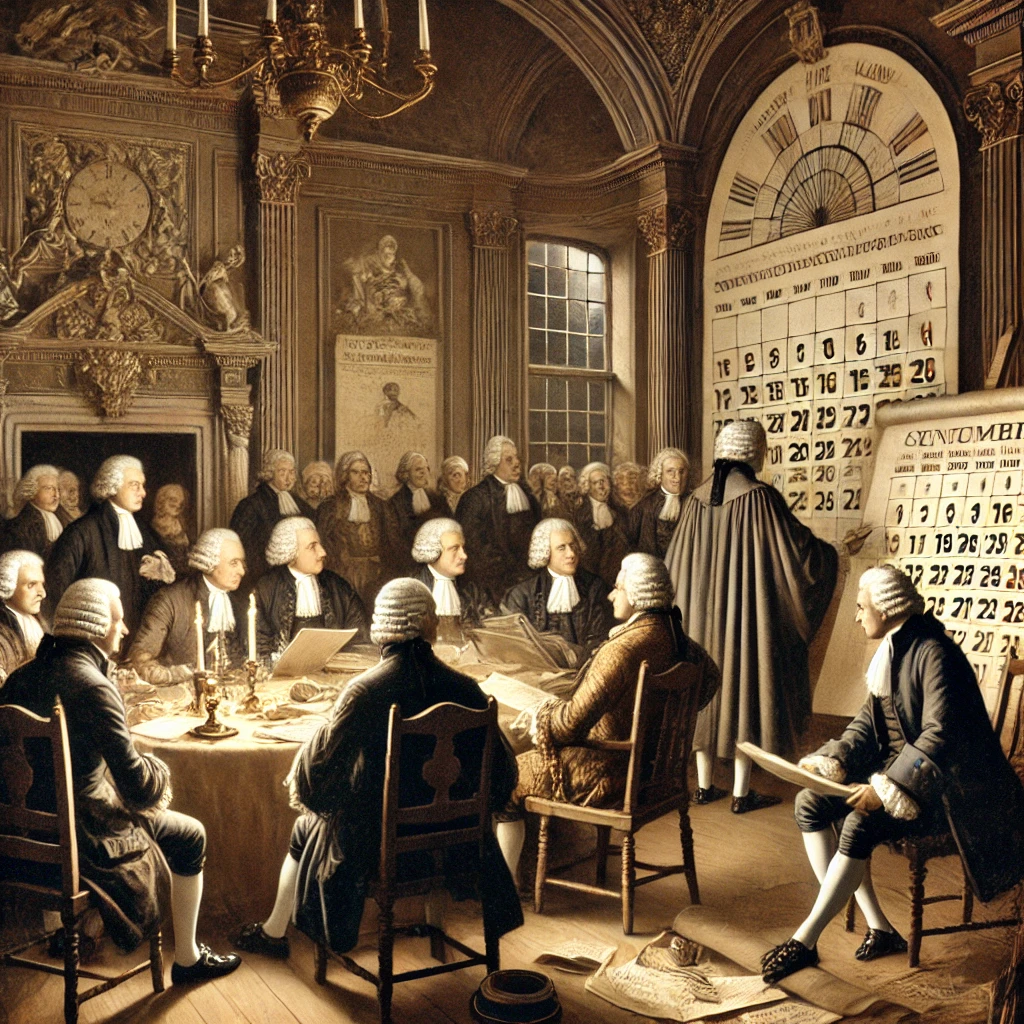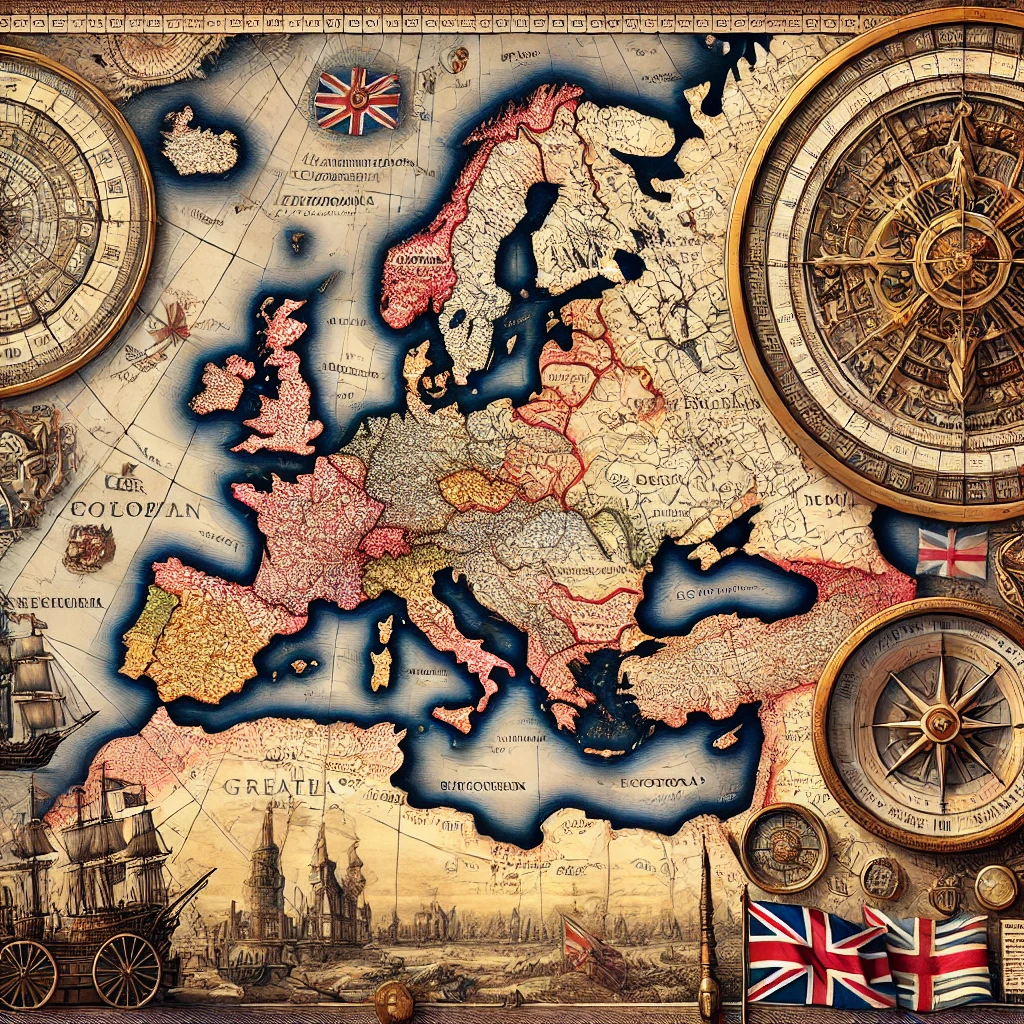On September 14, 1752, Great Britain and its colonies experienced an unusual calendar shift that altered the daily lives of its residents. This event marked the adoption of the Gregorian calendar, a change that involved the abrupt loss of eleven days from the calendar. This transition from the Julian to the Gregorian calendar was a significant moment in history, impacting various aspects of life, governance, and international relations.
The Gregorian Calendar and Its Origins
The Gregorian calendar, introduced by Pope Gregory XIII in 1582, was a reform of the Julian calendar that had been in use since 45 BCE. The Julian calendar, while effective, had a small error in its calculation of the solar year, leading to a gradual drift of dates over time. The Gregorian calendar was designed to correct this drift by adjusting the leap year system and realigning the calendar with the equinoxes and solstices.

Pope Gregory XIII’s reform aimed to bring the date of the spring equinox closer to March 21, as it had been during the time of the First Council of Nicaea in 325 AD. This correction was essential for accurately determining the date of Easter and maintaining the calendar’s alignment with astronomical events.
The Julian to Gregorian Calendar Transition
While the Gregorian calendar was quickly adopted by Catholic countries following its introduction in 1582, Protestant and Orthodox countries were slower to embrace the reform. Great Britain and its colonies remained on the Julian calendar for over 150 years after the Gregorian calendar’s introduction. This delay caused discrepancies in dates and scheduling between countries that had adopted the Gregorian calendar and those that had not.
The discrepancy became increasingly problematic in the 18th century as international trade, diplomacy, and communication expanded. The need for a standardized calendar system became evident, prompting Britain to adopt the Gregorian calendar to align itself with other European nations and facilitate smoother interactions.

The 1752 Calendar Change
On September 14, 1752, Great Britain and its American colonies made the switch from the Julian to the Gregorian calendar. To align with the new calendar system, the British government decreed that the day after September 2, 1752, would be September 14, effectively removing eleven days from the calendar. This change was implemented to correct the discrepancy between the Julian and Gregorian calendars and bring the British calendar into alignment with the rest of Europe.
The adjustment was met with mixed reactions from the public. Many people were confused and frustrated by the sudden loss of days, as it disrupted their daily routines and financial records. There were even rumors and protests, with some believing that the government had stolen eleven days of their lives. Despite these reactions, the calendar reform was crucial for modernizing the calendar system and ensuring consistency in timekeeping.
The Historical Context of the Calendar Reform
The adoption of the Gregorian calendar was not merely a technical adjustment but also a reflection of broader historical and cultural shifts. The transition marked a move towards greater synchronization with international standards, reflecting Britain’s increasing engagement with global affairs. The reform facilitated more accurate record-keeping, improved scheduling for international transactions, and better coordination with other countries.
The calendar change also had implications for religious observances and agricultural practices. The adjustment realigned the dates of important events and holidays, affecting how people planned their activities and celebrations. The shift demonstrated the impact of calendar reforms on various aspects of daily life and the importance of standardization in a rapidly changing world.

Lasting Impact of the Calendar Reform
The transition to the Gregorian calendar had a lasting impact on Great Britain and its colonies. It facilitated greater consistency in international relations and commerce, aligning Britain with the calendar systems used by other European countries. This alignment was essential for fostering economic growth, diplomatic relations, and cultural exchanges.
In addition to its practical implications, the calendar reform represented a broader trend towards modernization and standardization in the 18th century. The adoption of the Gregorian calendar was part of a larger movement towards adopting uniform systems and practices that could facilitate progress and development in various fields.
The impact of the calendar reform extended beyond its immediate effects. It influenced subsequent calendar reforms and standardization efforts in other countries, contributing to the global adoption of the Gregorian calendar. The shift also highlighted the importance of accurate timekeeping and the role of calendar systems in shaping historical and cultural practices.
Cultural and Social Reactions
The cultural and social reactions to the calendar reform were varied. While many people adapted to the change without issue, others struggled with the disruption to their routines and the perceived loss of days. The transition highlighted the challenges of implementing significant changes in established systems and the need for clear communication and education during such reforms.
The calendar reform also sparked discussions about the role of government in regulating daily life and the impact of administrative decisions on individuals. The mixed reactions and protests demonstrated the complexities of managing large-scale changes and the importance of considering public perceptions and concerns.
The Calendar Reform’s Influence on Modern Practices
The adoption of the Gregorian calendar by Great Britain set a precedent for other countries considering similar reforms. The transition highlighted the benefits of standardized timekeeping and the need for consistency in international interactions. It also contributed to the development of modern calendar systems and practices, influencing how societies manage time and coordinate activities.
Today, the Gregorian calendar is the most widely used calendar system in the world, reflecting the lasting impact of the 1752 reform. The transition to the Gregorian calendar remains an important historical event, illustrating the interplay between timekeeping, governance, and societal change.
The shift to the Gregorian calendar in 1752 was a pivotal moment in history that transformed the way time was managed and perceived. It marked a significant step towards standardization and modernization, with lasting effects on international relations, commerce, and daily life. The adoption of the Gregorian calendar reflects the importance of aligning systems and practices to facilitate progress and development in a globalized world.
